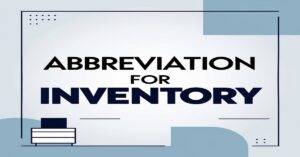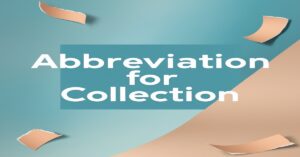Adjectives are essential for adding color and depth to language, enriching our conversations and writing. Whether you’re crafting an engaging story, describing a beautiful scene, or seeking the perfect word to capture a feeling, adjectives bring our words to life. The letter “P” boasts a diverse range of adjectives, each contributing its own unique flair.
If you’ve ever found yourself searching for that perfect word that starts with “P,” this list is for you.
Why “P” Adjectives Matter
The power of a well-chosen adjective is undeniable. A strong adjective can create vivid imagery, evoke emotions, and make your writing or speech more impactful. Adjectives starting with “P” offer a variety of descriptions—from the playful and positive to the dramatic and profound. These words help articulate complex ideas and paint a detailed picture in the reader’s or listener’s mind.
In this article, we’ll explore over 50 adjectives that start with “P,” divided into different categories to help you find the right word for any occasion.
Positive and Uplifting Adjectives
When you want to bring a sense of positivity and encouragement into your writing, “P” adjectives can do the trick. These words can help you describe uplifting experiences, people, and moments.
- Proud – Feeling a sense of accomplishment or pride.
- Perfect – Without flaws, ideal.
- Playful – Full of fun, lighthearted.
- Polite – Showing respect and good manners.
- Peppy – Energetic and lively.
- Pleasant – Giving a sense of enjoyment or comfort.
- Praiseworthy – Deserving of praise or admiration.
- Posh – Elegant, luxurious, high-class.
- Prime – In the best possible condition, excellent.
- Plentiful – Abundant, more than enough.
Descriptive Adjectives for Places and Settings
The letter “P” also offers a variety of adjectives perfect for describing environments, settings, and locations. These words help to set the scene, whether you’re narrating a story or giving a travel recommendation.
- Picturesque – Visually attractive, often in a charming or quaint way.
- Peaceful – Calm and serene, free of disturbance.
- Pristine – In perfect condition, untouched.
- Pale – Light in color, often referring to shades of white or pastels.
- Prominent – Standing out, noticeable or important.
- Pleasant – Giving a sense of enjoyment or comfort.
- Portly – Having a slightly overweight, but dignified appearance.
- Perilous – Dangerous, involving risk or harm.
- Private – Secluded or restricted to certain people.
- Plush – Luxurious, rich in texture or appearance.
Negative Adjectives with P
While “P” adjectives often have positive connotations, they also cover more somber or critical aspects. These can be useful for describing difficult situations or characters with less favorable traits.
- Pessimistic – Expecting the worst, having a negative outlook.
- Pitiful – Deserving of sympathy, often in a sad or sorrowful way.
- Petty – Of little importance, often trivial or narrow-minded.
- Pompous – Self-important, arrogant in a pretentious way.
- Pale – Lacking in intensity or vitality.
- Perfidious – Deceptive, disloyal.
- Pungent – Having a strong, often unpleasant smell or taste.
- Petrified – Frozen in fear, stiff with terror.
- Pernicious – Harmful, having a dangerous effect.
- Prolonged – Extended or lasting longer than expected or necessary.
Personality and Character Descriptions
When it comes to describing people, the letter “P” has plenty of adjectives that help capture an individual’s traits, emotions, or characteristics. These words add nuance to how we describe personalities.
- Passionate – Intense in feeling or enthusiasm.
- Persistent – Continuing firmly despite difficulties.
- Principled – Guided by strong moral principles.
- Proud – Taking satisfaction in one’s achievements or qualities.
- Patient – Able to wait calmly or endure difficulty without frustration.
- Perceptive – Quick to notice or understand things.
- Proactive – Taking initiative, not waiting for things to happen.
- Perky – Cheerful, lively, or in good spirits.
- Polished – Refined, sophisticated, with a high level of skill.
- Pretentious – Trying to appear more important or cultured than one actually is.
Powerful Adjectives for Impact
Some “P” adjectives are particularly strong in their connotation, offering a sense of power, importance, or urgency. These words can make your speech or writing more authoritative and commanding.
- Powerful – Having great strength or influence.
- Prolific – Highly productive, capable of producing large amounts.
- Prestigious – Having a high reputation, often respected and admired.
- Persistent – Continuing despite challenges or obstacles.
- Preeminent – Superior, surpassing all others in quality or rank.
- Predatory – Living by preying on others; aggressive or exploitative.
- Pivotal – Crucial or essential to the success or development of something.
- Potent – Having great power or influence.
- Pungent – Strongly affecting the senses, often with sharp or bitter qualities.
- Precarious – Dangerous or unstable, requiring caution.
Adjectives Describing Appearance and Aesthetics
These adjectives help to paint a vivid picture of people, places, or things, making them come alive in your descriptions.
- Pale – Lacking in color or brightness.
- Puffy – Swollen or inflated, often used to describe cheeks or eyes.
- Pristine – In an original, unspoiled state.
- Punky – A style that is edgy, rebellious, or unconventional.
- Poreless – Having smooth skin without any visible pores.
- Posh – Luxurious, elegant, or fashionable.
- Paleolithic – Relating to the early stone age, often describing ancient or primitive looks.
- Plush – Soft and luxurious to the touch.
- Pineapple-y – Resembling the tropical fruit, often used in a fun or quirky way.
- Polished – Refined, elegant, or expertly made.
Emotional and Feeling-Based Adjectives
These adjectives capture a range of human emotions and sensations, allowing you to convey specific feelings.
- Pained – Experiencing physical or emotional pain.
- Pleased – Feeling content or satisfied.
- Peppy – Energetic and lively.
- Panic-stricken – Overcome with fear or anxiety.
- Pensive – Thoughtful, often in a melancholic way.
- Proud – Feeling satisfaction or pride in something or someone.
- Pained – Showing signs of suffering or distress.
- Pitiful – Evoking sympathy, often in a sorrowful way.
- Perplexed – Confused or unsure.
- Proud – Showing self-esteem or satisfaction.
Intellectual and Cognitive Traits
Use these adjectives to describe someone’s mental abilities, perception, or intellect.
- Perceptive – Having a keen understanding or insight.
- Pragmatic – Practical and realistic, focused on facts and actions.
- Pensive – Deep in thought or reflection.
- Precise – Exact, accurate, and meticulous.
- Philosophical – Concerned with the fundamental nature of knowledge and reality.
- Proficient – Skilled, competent, or capable in a specific area.
- Prominent – Easily noticeable, important or significant.
- Prodigious – Extraordinary in size, degree, or force.
- Prescient – Having the ability to foresee or predict future events.
- Posthumous – Occurring or published after the death of the originator.
Adjectives for Size, Shape, and Condition
These adjectives help describe the physical attributes of things, focusing on size, shape, and overall condition.
- Petite – Small and delicate, often used for people.
- Plump – Slightly overweight, often used to describe something that is pleasantly round.
- Puny – Small, weak, or lacking in strength.
- Prickly – Having a sharp or spiny texture.
- Proportionate – Having balanced or equal parts.
- Puffy – Full of air or swollen, often describing fabric or clouds.
- Pyramidal – Shaped like a pyramid, typically describing structure or forms.
- Peaky – Having a peak shape, or suffering from a lack of vitality.
- Protruding – Sticking out, jutting forward.
- Pockmarked – Covered in small holes, often used for skin or surfaces.
Time and Frequency-Based Adjectives
These adjectives help you convey aspects of time, frequency, or duration.
- Punctual – Arriving or happening at the expected or scheduled time.
- Periodic – Occurring at regular intervals.
- Persistent – Continuing without interruption or pause.
- Punctuated – Marked with interruptions or distinct breaks.
- Prolonged – Continuing for a long time beyond what is usual or expected.
- Prime – The best, most optimal stage.
- Past – Relating to a previous time or period.
- Prompt – Done without delay, timely.
- Preliminary – Serving as an introduction or preparation before the main event.
- Pace-setting – Setting a standard or rate for future actions.
Positive Character Traits
These adjectives highlight admirable characteristics that people might possess.
- Patient – Able to tolerate delays or problems without frustration.
- Polite – Showing good manners and respect for others.
- Proud – Exhibiting a sense of self-respect or satisfaction.
- Proactive – Taking initiative to solve problems before they arise.
- Pragmatic – Dealing with situations sensibly and realistically.
- Principled – Guided by strong moral principles.
- Perseverant – Showing persistence and determination.
- Philanthropic – Concerned with promoting the welfare of others, charitable.
- Persuasive – Able to convince others to believe or do something.
- Pristine – Unspoiled, pure, or clean.
Negative Character Traits
These adjectives focus on negative or undesirable qualities, often used to describe attitudes or behaviors.
- Pompous – Acting self-important in an arrogant way.
- Petty – Small-minded, concerned with insignificant matters.
- Prejudiced – Having preconceived opinions or bias, often unjust.
- Pernicious – Harmful, especially in a subtle or gradual way.
- Pessimistic – Expecting the worst, lacking hope.
- Peculiar – Odd, strange, or unusual in an uncomfortable way.
- Pushy – Overbearing or aggressively insistent.
- Perfidious – Disloyal or treacherous.
- Phony – Fake, not genuine.
- Procrastinatory – Tending to delay or put things off unnecessarily.
Describing Energy and Movement
These adjectives describe how things or people move or how much energy they have.
- Pulsating – Beating or throbbing with rhythm or energy.
- Pacy – Moving at a fast or brisk pace.
- Prancing – Moving with a springy, lively step.
- Paddling – Moving through water with small, quick strokes.
- Pioneering – Breaking new ground, leading the way.
- Plodding – Moving in a slow, heavy, or laborious manner.
- Pitter-pattering – Describing soft, light sounds, often used for rain.
- Propulsive – Having the force or power to drive forward.
- Pacing – Walking back and forth, often due to anxiety or thoughtfulness.
- Purring – A soft, continuous sound, often made by content animals.
Describing Movement and Speed
These adjectives describe the way things move or the speed at which something happens.
- Pace-setting – Leading or setting the standard for speed or progress.
- Precipitous – Steep, with a sudden drop or sharp incline.
- Plodding – Moving slowly and heavily, often due to tiredness.
- Pushing – Encouraging or propelling something forward.
- Puttering – Moving in a slow, relaxed, or idle manner.
- Pouncing – Jumping suddenly or springing forward with energy.
- Paddling – Moving slowly through water with light strokes.
- Pulsating – Throbbing or beating with a rhythmic motion.
- Preemptive – Taking action in anticipation of something.
- Puttering – Moving in an aimless or leisurely manner.
Adjectives for Size, Shape, and Proportion
These adjectives describe the dimensions, form, or structure of things.
- Peewee – Extremely small, often used in reference to size or stature.
- Pyramidal – Shaped like a pyramid, with a broad base and narrow top.
- Pint-sized – Small in size, often used in reference to people or objects.
- Puffed – Swollen, inflated, or bloated, often used to describe something that appears full.
- Plenty-sized – Large, abundant, or ample.
- Pointed – Having a sharp end or tip.
- Polished – Smooth, shiny, or refined, often describing surfaces.
- Pockmarked – Covered with small holes or dents, often describing skin or surfaces.
- Pale – Lacking in brightness, often referring to light colors or a lack of vitality.
- Prickly – Covered with sharp points, usually used to describe textures or people.
Describing Sounds and Sensations
These adjectives help describe sounds, sensations, or experiences that engage the senses.
- Piercing – Sharp and intense, often describing sounds or sensations.
- Pungent – Having a strong, often unpleasant smell or taste.
- Pattering – Light, quick, repetitive sounds, often describing raindrops or footsteps.
- Purring – A soft, continuous sound, often made by content animals.
- Peevish – Showing annoyance or irritation, often used to describe tone or behavior.
- Plopping – The sound made when something heavy falls into water or soft ground.
- Prickling – A tingling sensation, often experienced on the skin.
- Pleasant – Giving a sense of enjoyment, comfort, or satisfaction.
- Piping – High-pitched, clear, or shrill, often used for voices or sounds.
- Pounding – Strong, rhythmic beats or impacts.
Conclusion: The Power of P Adjectives
Adjectives that start with “P” are incredibly versatile, offering a rich variety of words to describe everything from emotions and personality traits to environments and situations. With over 50 powerful adjectives to choose from, you can enhance your writing and speaking, making your communication more vivid and engaging. So the next time you’re searching for the perfect word, let the letter “P” be your guide, and you’ll find exactly what you need to make your expression more dynamic and precise.
Which “P” adjective do you find most useful in your writing? Or perhaps, which one has the most impact in your daily conversations? Explore these words, and experiment with how they can elevate your language.
MCQ Quiz: 50+ Adjectives Starting with P
1. Which of the following adjectives describes someone who is always on time?
a) Pompous
b) Punctual
c) Proactive
d) Pretentious
Answer: b) Punctual
2. Which adjective would you use to describe a sound that is high-pitched and clear?
a) Plodding
b) Piping
c) Pattering
d) Purring
Answer: b) Piping
3. What does the adjective “plentiful” mean?
a) Scarce
b) In large quantities
c) Small in quantity
d) A specific type of food
Answer: b) In large quantities
4. Which of these adjectives describes something that is soft, smooth, and luxurious to the touch?
a) Pockmarked
b) Plush
c) Pale
d) Pompous
Answer: b) Plush
5. If someone is described as “persistent,” what does it mean?
a) They give up easily
b) They are focused on practical solutions
c) They continue steadily despite difficulties
d) They are always positive
Answer: c) They continue steadily despite difficulties
6. Which of the following describes a situation that is ongoing for an extended period of time?
a) Proportional
b) Prolonged
c) Preliminary
d) Posthumous
Answer: b) Prolonged
7. If a person is acting “pompous,” they are likely to be:
a) Modest and humble
b) Trying to impress others in an exaggerated manner
c) Calm and tolerant
d) Uninterested in self-promotion
Answer: b) Trying to impress others in an exaggerated manner
8. The adjective “pristine” refers to something that is:
a) Dirty and neglected
b) Original and unspoiled
c) Complicated and rare
d) Overly decorated
Answer: b) Original and unspoiled
9. Which adjective would you use to describe a small, delicate person or object?
a) Puny
b) Plentiful
c) Pompous
d) Piquant
Answer: a) Puny
10. What does “paltry” mean?
a) Rich and abundant
b) Insufficient or small in amount
c) Large and grand
d) Lively and energetic
Answer: b) Insufficient or small in amount
11. Which of the following is the best description of “pensive”?
a) Carefree and bubbly
b) Thoughtful and reflective
c) Angry and irritated
d) Confused and unsure
Answer: b) Thoughtful and reflective
12. Which of these adjectives would describe something that is harmful in a subtle, gradual way?
a) Pernicious
b) Pompous
c) Pale
d) Pensive
Answer: a) Pernicious
13. If a person is described as “polite,” what trait do they exhibit?
a) Arrogance
b) Rudeness
c) Good manners and respect
d) A lack of consideration for others
Answer: c) Good manners and respect
14. Which adjective describes a small, fast-moving or small object?
a) Petite
b) Pensive
c) Pompous
d) Prolific
Answer: a) Petite
15. What does “permeable” mean?
a) Having a smooth surface
b) Capable of being passed through
c) Covered with sharp points
d) Very large or abundant
Answer: b) Capable of being passed through
16. Which adjective refers to something that is clear and simple, without any unnecessary parts?
a) Pompous
b) Pungent
c) Precise
d) Prolific
Answer: c) Precise
17. What does “prickly” usually describe?
a) A smooth surface
b) A sharp or spiny texture
c) A sweet scent
d) A joyful personality
Answer: b) A sharp or spiny texture
18. Which of the following is an adjective for something that is soft and fluffy, like a pillow?
a) Perplexed
b) Pithy
c) Pillowy
d) Pungent
Answer: c) Pillowy
19. If something is described as “petite,” it is:
a) Very large
b) Small and delicate
c) Strong and muscular
d) Heavy and dense
Answer: b) Small and delicate
20. Which adjective means something occurring after the death of the originator?
a) Prodigious
b) Posthumous
c) Perpetual
d) Proportionate
Answer: b) Posthumous
21. What does the adjective “perpetual” describe?
a) Occurring only once
b) Continuing indefinitely or forever
c) Limited in scope
d) Just a temporary phas
Answer: b) Continuing indefinitely or forever
22. Which adjective would you use to describe a personality that is always ready to act or take charge?
a) Passive
b) Pretentious
c) Proactive
d) Pompous
Answer: c) Proactive
23. What does “pragmatic” refer to?
a) Focusing on the theoretical and idealistic
b) Being practical and realistic
c) Showing exaggerated emotions
d) Focusing on humor and wit
Answer: b) Being practical and realistic
24. Which adjective is best for describing someone who is always striving for the best?
a) Pompous
b) Passionate
c) Petty
d) Prejudiced
Answer: b) Passionate
25. What does “plodding” mean in relation to movement?
a) Fast and energetic
b) Slow and heavy
c) Light and quick
d) Quiet and smooth
Answer: b) Slow and heavy
26. What does the adjective “perceptive” describe?
a) Noticing small details and understanding things quickly
b) Acting without thinking
c) Lacking in understanding
d) Avoiding all forms of emotion
Answer: a) Noticing small details and understanding things quickly
27. Which adjective describes a smell that is sharp and often unpleasant?
a) Pleasant
b) Pungent
c) Polished
d) Petite
Answer: b) Pungent
28. Which adjective would best describe something that is steep or has a sharp incline?
a) Plodding
b) Pyramidal
c) Precipitous
d) Persistent
Answer: c) Precipitous
29. A “paltry” amount is:
a) Large and excessive
b) Minimal and inadequate
c) Surprising and unusual
d) Bright and colorful
Answer: b) Minimal and inadequate
30. Which adjective best describes a situation in which someone is analyzing deeply and thoughtfully?
a) Pensive
b) Pompous
c) Precarious
d) Perplexed
Answer: a) Pensive
31. If something is described as “posthumous,” it happens:
a) After a particular event
b) After someone’s death
c) During someone’s lifetime
d) Before a significant event
Answer: b) After someone’s death
32. Which adjective would you use to describe something that is in a naturally clean and unspoiled state?
a) Polluted
b) Pungent
c) Pristine
d) Prolific
Answer: c) Pristine
33. Which adjective describes something occurring at regular intervals?
a) Preceding
b) Periodic
c) Permanent
d) Prolonged
Answer: b) Periodic
34. Which of these adjectives best describes a “sharp” and “pointy” feature?
a) Puny
b) Pointed
c) Proportional
d) Pristine
Answer: b) Pointed
35. Which of these adjectives refers to something pleasant and delightful?
a) Pompous
b) Pungent
c) Pleasant
d) Pervasive
Answer: c) Pleasant
36. What does “petty” mean when describing a behavior?
a) Magnanimous and generous
b) Concerned with insignificant matters
c) Overly intellectual
d) Very large and significant
Answer: b) Concerned with insignificant matters
37. Which adjective describes a time that is short or limited in scope?
a) Prolonged
b) Preliminary
c) Perpetual
d) Petty
Answer: b) Preliminary
38. What does “proficient” mean?
a) Lacking in skill
b) Skilled or competent
c) Rude and inconsiderate
d) Only interested in theoretical ideas
Answer: b) Skilled or competent
39. What is described by the adjective “propulsive”?
a) Lacking movement
b) Driving something forward
c) Creating a soft texture
d) Setting the pace for others
Answer: b) Driving something forward
40. Which adjective describes a personality that is always thinking ahead?
a) Prejudiced
b) Perceptive
c) Posthumous
d) Prodigious
Answer: b) Perceptive
41. What does “pragmatic” mean?
a) Idealistic and theoretical
b) Practical and sensible
c) Prejudiced and opinionated
d) Rebellious and rash
Answer: b) Practical and sensible
42. Which adjective best describes a situation with significant and notable change?
a) Plodding
b) Profound
c) Petty
d) Pretentious
Answer: b) Profound
43. The adjective “polished” refers to something that is:
a) Dirty and unkempt
b) Refined and finished
c) Rough and uneven
d) Unchanged and raw
Answer: b) Refined and finished
44. Which adjective describes an attitude of holding back feelings and being thoughtful?
a) Pensive
b) Pushy
c) Precarious
d) Prolific
Answer: a) Pensive
45. What does “prolific” refer to?
a) Being highly productive or abundant
b) Being slow and steady
c) Having very few accomplishments
d) Making unimportant contributions
Answer: a) Being highly productive or abundant
46. Which of these adjectives refers to a personality that takes action before being told?
a) Passive
b) Proactive
c) Pompous
d) Plodding
Answer: b) Proactive
47. Which adjective describes something that is particularly rare or impressive in quality?
a) Pompous
b) Prodigious
c) Petty
d) Pale
Answer: b) Prodigious
48. What does “paltry” mean when describing an amount?
a) Large
b) Insufficient
c) Over-the-top
d) Average
Answer: b) Insufficient
49. Which adjective would you use to describe something with sharp, prickly features?
a) Polished
b) Pungent
c) Pockmarked
d) Prickly
Answer: d) Prickly
50. Which adjective best describes a personality that is kind, humble, and caring?
a) Pompous
b) Prodigious
c) Polite
d) Pretentious
Answer: c) Polite
I hope this helps!

Tony James is a passionate wordsmith and the creative force behind Winky Hive. With a knack for uncovering the stories behind slang and weaving emotions into poetry, Tony brings a unique voice to every piece he writes. A lifelong lover of language, he thrives on exploring how words evolve, connect, and inspire.
When he’s not penning articles or crafting verses, Tony enjoys diving into cultural trends, reading classic poetry, and discovering hidden gems in modern expressions. His mission? To make Winky Hive a haven for those who love the art of language in all its vibrant forms.









